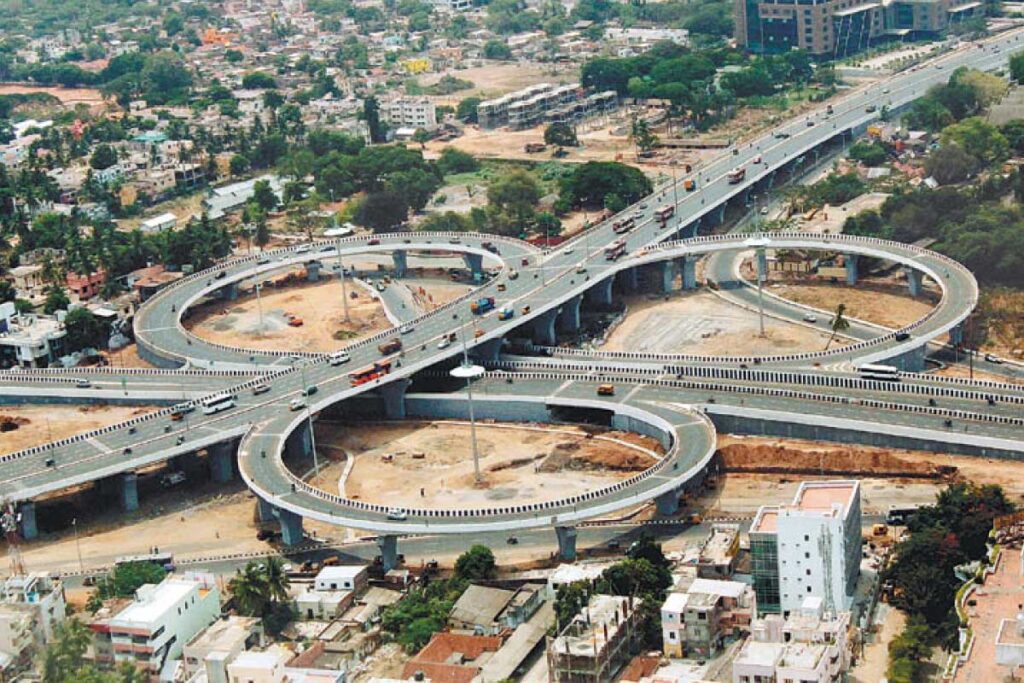Government infrastructure contracts in Tamil Nadu represent some of the most challenging and rewarding projects in the construction industry. Success requires more than competitive bidding—it demands deep understanding of government processes, proven execution capabilities, and long-term strategic thinking.
Understanding the Tender Landscape
Tamil Nadu’s government infrastructure tenders span multiple categories:
1. Highway and Transportation
- State Highways: Connecting cities and rural areas
- Bridge Construction: Spanning rivers and rail networks
- Urban Roads: Supporting metropolitan development
- Rural Connectivity: Ensuring last-mile accessibility
2. Institutional Buildings
- Government Offices: Administrative facilities across districts
- Educational Institutions: Schools, colleges, and training centers
- Healthcare Facilities: Hospitals and primary health centers
- Public Utilities: Post offices, police stations, and civic buildings
3. Water and Sanitation
- Treatment Plants: Water purification and sewage processing
- Distribution Networks: Comprehensive supply systems
- Drainage Systems: Urban flood management infrastructure
- Storage Facilities: Reservoirs and overhead tanks
The companies that thrive in Tamil Nadu’s government infrastructure sector are those that view each project not just as a contract, but as an opportunity to contribute to the state’s growth and development while building lasting partnerships with government agencies.
Key Success Factors for Government Contracts
1. Regulatory Expertise
Government projects involve complex compliance requirements. Successful contractors must understand:
- Environmental clearance procedures
- Safety regulations and protocols
- Quality standards and specifications
- Documentation and reporting requirements
2. Financial Capability
Large-scale infrastructure projects require substantial financial resources:
- Working capital for material procurement
- Equipment investment and maintenance
- Skilled workforce management
- Risk management and insurance coverage
3. Technical Excellence
Government projects demand proven technical capabilities:
- Engineering design expertise
- Construction methodology knowledge
- Quality control systems
- Project management experience
4. Relationship Management
Long-term success depends on strong government relationships:
- Understanding departmental procedures
- Building trust through consistent performance
- Maintaining transparent communication
- Demonstrating reliability and integrity
The PWD Partnership Advantage
Working with the Public Works Department (PWD) offers unique opportunities:
- Consistent Project Pipeline: Regular tender announcements across categories
- Standardized Processes: Well-defined procedures and requirements
- Long-term Partnerships: Opportunities for repeat contracts
- State-wide Reach: Projects spanning all districts
Municipal Corporation Opportunities
City-level projects provide different advantages:
- Urban Focus: Modern infrastructure requirements
- Innovation Opportunities: Smart city initiatives
- Community Impact: Direct citizen benefit visibility
- Technology Integration: Digital infrastructure components
Best Practices for Government Contract Success
Pre-Tender Preparation
- Thorough requirement analysis
- Accurate cost estimation
- Resource availability assessment
- Risk evaluation and mitigation planning
Execution Excellence
- Detailed project planning and scheduling
- Quality material procurement
- Skilled workforce deployment
- Regular progress monitoring and reporting
Stakeholder Management
- Proactive communication with government officials
- Community engagement and awareness
- Transparent financial management
- Timely issue resolution
Measuring Success Beyond Project Completion
True success in government infrastructure extends beyond on-time, on-budget delivery:
1. Community Impact
- Infrastructure functionality and reliability
- Positive effects on local economic development
- Improved quality of life for citizens
- Environmental sustainability
2. Government Satisfaction
- Meeting or exceeding specifications
- Smooth project coordination
- Professional conduct throughout execution
- Post-completion support and maintenance
3. Business Growth
- Enhanced reputation and credibility
- Expanded government relationships
- Increased tender success rates
- Sustainable business development
The Future of Government Infrastructure in Tamil Nadu
Tamil Nadu’s infrastructure development continues to evolve with:
- Digital Integration: Smart infrastructure and IoT implementation
- Sustainable Practices: Green building and eco-friendly materials
- Public-Private Partnerships: Collaborative funding and execution models
- Innovation Adoption: New technologies and construction methods
Success in this dynamic environment requires contractors who combine traditional construction excellence with modern innovation, government relationship expertise, and unwavering commitment to public service.
For government agencies seeking infrastructure partners, the key lies in selecting contractors with proven track records, established relationships, and a genuine commitment to public infrastructure excellence.

